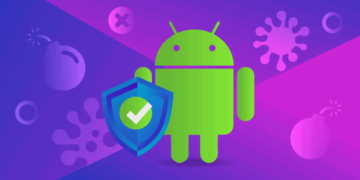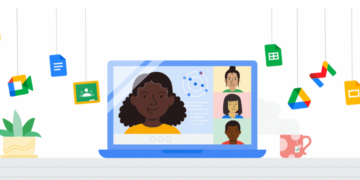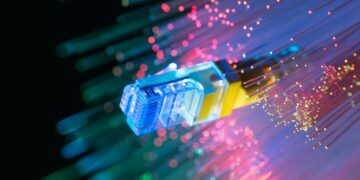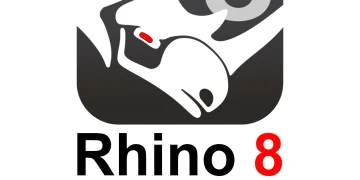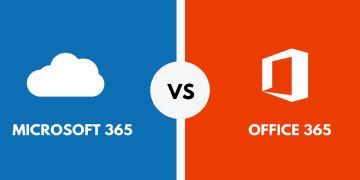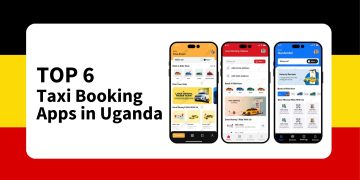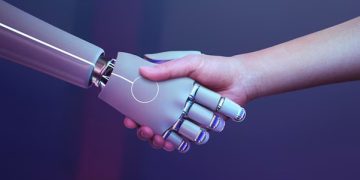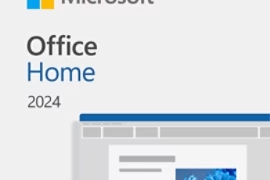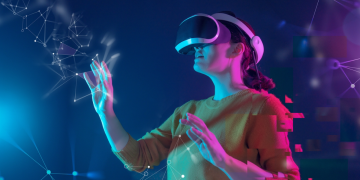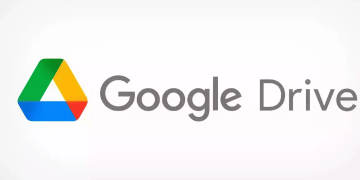Based on my analysis, artificial intelligence (AI) is slowly taking the lead in the future of digital marketing. The brands that are using AI for their performance-driven campaigns will be the winners. I mean the businesses of today are not dependent on trial and error anymore or on manual measures of improvement; they are using the power of AI for making right decisions, automating processes, and scaling smarter. The partnership between Google Ads and Meta advertising platforms has become the most powerful engine that drives marketers to reach their goals of measurable growth with precision and speed.
Internet marketing campaigns are getting more specialized as the digital landscape changes, and companies will need to turn to a Google Ads management company, a data-driven Google Ads management agency, or expert-led AdWords management services for effective online campaign management. The Google Ads management professionals, offering Google Ads management services, are utilizing both automation and sophisticated analytics to understand the performance and ROI better. The same way, the strategic Google AdWords services and Google AdWords management services have applied AI algorithms to foresee customer activity and provide ads targeted to the right audience at the right time with high relevance.
It is my contention that this transformation towards AI-powered advertising is a watershed moment in the history of business interaction with potential customers in terms of attracting, engaging, and converting them. Let us delve into how AI is reshaping Google Ads and Meta marketing to provide remarkable results.
The Role of AI in Modern Advertising
Market research indicates that the use of artificial intelligence in digital advertising has become the primary support of the whole industry. It has automated the data analysis, improved the targeting precision, and coordinated the ad delivery on the different platforms efficiently. In Google Ads, AI relies on both—the historical performance data and real-time user signals— to choose the ad that will perform the best with a certain audience segment.
Likewise, the machine learning algorithms of Meta scrutinize the users’ activities across Facebook, Instagram, and other Meta-owned sites, thus allowing advertisers to contact the users with the messages that suit the users’ interests and intentions.
From my research, I found out that AI can handle huge amounts of data, which is where the true power of AI lies; this is something that human marketers struggle with and cannot do effectively. Through this data-driven intelligence, the advertisers are helped to discover the underlying patterns, the likes and dislikes, and the conversion triggers that sway consumer behavior.
When done properly, an AI solution will not only cut down the budgets on unproductive ads but also use smarter bidding strategies and let the campaigns keep changing according to the actual performance.
Google Ads and the AI Revolution
The advertising ecosystem of Google has undergone a remarkable change with the addition of machine learning and automation. The whole process of managing the ads has been completely overhauled by the introduction of Smart Bidding, Performance Max, and Responsive Search Ads.
According to my information, Google Ads management services that use AI-based software can take care of everything from keyword targeting through to the allocation of budgets. For instance, Smart Bidding changes the bids in real time in such a way that the maximum number of conversions are obtained according to the device, location, and even time of day.
From my studies, I found that Google’s AI is also involved in the process of increasing the audience segmentation through the use of predictive analysis. The company can spot the potential high-value customer even before he/she gets engaged and will, therefore, arrange for the delivery of ads in a way that maximizes conversion rates. Also, the automated insights dashboards will assist the advertisers in knowing which campaigns are the most productive—without having the need of an extensive manual data analysis.
This utmost degree of automation, accuracy, and learning is precisely what makes the Google Ads management company a must-have for the brands that are aiming to keep their competition in an AI-first world.
Meta’s AI Integration and the Rise of Intelligent Advertising
Meta, according to a market research study, has developed one of the most hi-tech AI-powered advertising ecosystems in the world. On its platforms—Facebook, Instagram, and Messenger—Meta employs machine learning to scrutinize user engagement trends and to optimize the delivery of advertising campaigns.
Meta’s Advantage+ suite very much leans on AI to generate, test, and dispatch custom ads. Based on my buying research, the so-called system can work on a multitude of creative variations at once thereby picking the best-featured combinations for every single user segment.
From what I understand, this kind of automation indeed cuts down the time of the advertisers and at the same time raises the quality of the output. It is particularly to those campaigns that the technology is applied where AI determines the users who are the most likely to get re-engaged or to make a purchase.
The technology also facilitates a more profound comprehension of the audience through the Analysis of their sentiments, content interaction, and behavioral intent. Thus, it becomes possible for advertisers to target not only the traditional demographics but also the people according to their life’s motives and digital habits.
The role of AI in Meta’s ad system guarantees that each and every ad viewing is going to be a step towards a valuable interaction and the potential for conversion.
Synergy Between Google and Meta Ads
My research suggests that the combination of Google Ads and Meta Ads, both AI-based, is an unbeatable marketing duo. Google captures users with high purchasing intent through search, while Meta contributes to the awareness and engagement of consumers through social discovery.
When advertisers strategically link these two platforms, they can move customers effortlessly from the awarenessor to the conversion end. For instance, Meta Ads can draw new viewers by means of visual storytelling, and later Google Ads can engage those same users again through their searches for related products or services.
As per my knowledge, AI further strengthens this synergy by unifying insights from both ecosystems. Thus, advertisers can make use of cross-channel data in pinpointing patterns, optimizing messages, and fine-tuning customer journeys.
This consolidated tactic not only boosts efficiency but also assures that the marketing budget is allocated to the most promising—those who are already convinced—audiences.
Predictive Analytics: Forecasting Success
According to market analysis, predictive analytics is the best of AIs influence in advertising. AI spotlights the future campaign performance and decision making with very high precision by looking through past data.
To be more precise, white label website builders are applying predictive models to find out which keywords, audiences, and ad creatives would give the highest returns. Likewise, Meta’s prediction systems are spotting potential customers even before they make a move and thus giving advertisers a chance to target them during the buying process.
I have found out that this predictive power gives the firms the upper hand in making the right moves. Rather than just following the trends, advertisers can allocate resources beforehand depending on the future opportunities.
From my viewpoint, brands that use predictive analytics never fail to dominate the market since they are able to cut down on the marketing waste and improve their conversion rates.
AI and Creative Optimization
According to market research, AI is not only a numerical aspect but is also changing the dynamics of creativity. Google and Meta have both utilized AI-based solutions that synergistically screen and improve ad creatives.
In my analysis, AI is processing the alterations of ad headlines, visuals, and calls-to-action to find out the combination which appeals most to the target audience. For example, Google’s Responsive Search Ads will intelligently change text according to user intent, whereas Meta’s Creative Optimization tools will conduct automatic testing of images and copy to the effect of engagement enhancement.
The process of continuous creative refining does not only make ads stay new and pertinent, but also preserves their potency through time. To my knowledge, advertisers who are making use of AI-powered creative testing are witnessing an increase in click-through rates, better brand recall, and overall campaign performance improvement.
The Human Touch in AI-Powered Advertising
Based on my findings, though AI takes care of the automation and data, human know-how is still very important for result interpretation and strategic direction. An agency for Google Ads management can take a step further by examining the insights produced by AI, matching them with the objectives of the brand, and making sure that the communication is still true to the brand and touching people’s feelings.
AI implies accuracy, but it is the human experience that brings about the creativity and the emotional quotient. According to my observation, the most effective campaigns are those that use machine learning for efficiency but are still grounded in human storytelling and brand strategy.
This equilibrium gives the marketers the power to create deep relationships with their clients, which is the area where AI cannot compete at all.
The Future of AI-Powered Advertising
A market research study indicates that Digital advertising’s future is entirely connected to AI developments. By implementing constant innovations in automated processes, voice search, and predictive targeting, both Google and Meta are developing into self-learning ecosystems that can change their behavior according to users in real-time.
AI tools have been extensively researched, and advertisers who adopt them will reap the benefits of long-lasting success. The use of these technologies results in more efficient management of the campaigns, better return on investments, and customer acquisition through scaling up growth in the digital marketplace that is competition-oriented.
The next step in the integration of AI will almost certainly consist of more prominent personalization, automation across different platforms, and very accurate predictive insights, thus making marketing more productive and customer-oriented to an unprecedented degree according to my understanding.
Conclusion
According to my research, AI integration into Google Ads and Meta has completely changed the digital advertising landscape. Companies that accept AI-based expansion with Google Ads and Meta get the best targeting accuracy, automation, and investment return.
On the other hand, an advertising agency for Meta or an agency specializing in Meta ads is one of the key partners that help brands deal with the new and advanced tools. A professional Meta ad agency not only delivers data-driven but also creatively impacting campaigns.
With the assistance of a Meta ads company that is performance-oriented and provides high-quality Meta ads services, the brands can connect with the audience while automating. My point of view is that the future belongs to those who are able to find the right mix between AI intelligence and human insight as a way of achieving growth that is both sustained and digital excellence in an ever- AI-powered world.









